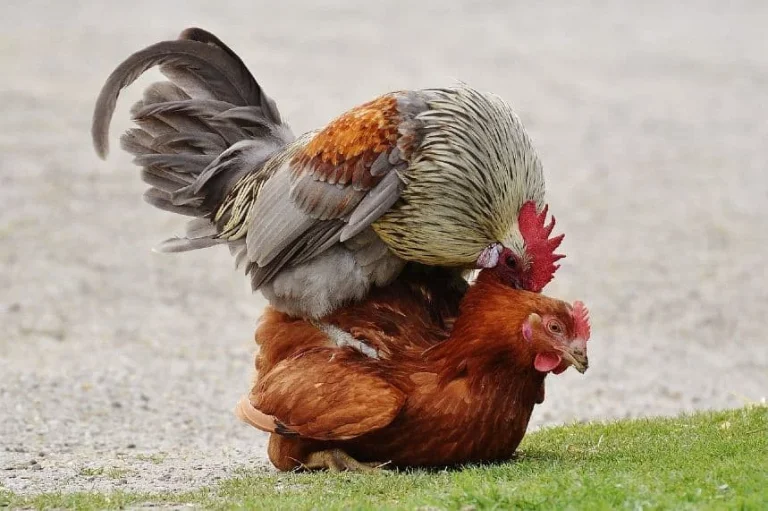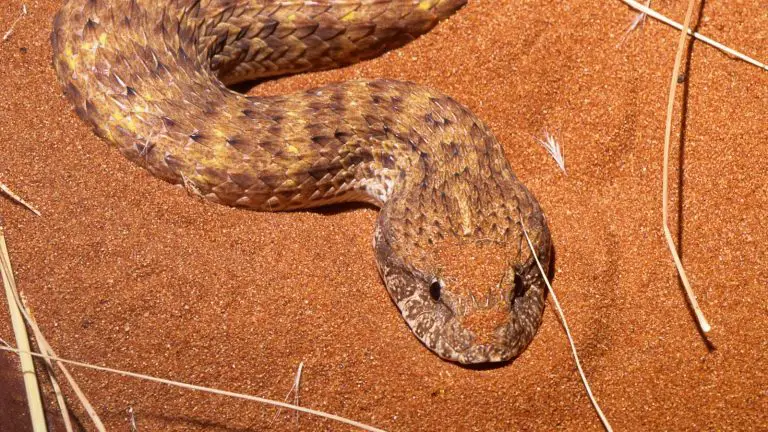How To Keep Ferrets As Pets – A Complete Guide for Ferret Lovers
Ferrets can be kept as pets with proper care and attention. Here’s everything you need to know.
Ferrets make great pets for people who are willing to dedicate time and effort to their care. These small, friendly creatures are known for their playful and curious nature. However, owning a ferret requires an understanding of their specific needs and characteristics.
We will explore various aspects of keeping ferrets as pets, including their diet, housing requirements, socialization, and health care. Whether you’re a first-time ferret owner or considering adding a new ferret to your family, this comprehensive guide will provide you with all the essential information you need to ensure a happy and healthy life for your furry friend. So, let’s dive in and learn everything there is to know about keeping ferrets as pets.

Ferret Care Essentials For New Owners
Understanding ferret behavior and temperament is crucial for providing proper care. Ferrets are highly intelligent and playful creatures that require mental stimulation and social interaction. They are also notorious escape artists, so it’s important to ensure your home is escape-proof before bringing a ferret home.
|
Setting up a ferret-friendly habitat involves creating a safe and stimulating environment. Provide plenty of hiding spots, tunnels, and climbing opportunities in their cage. Regularly clean the cage and litter box to maintain a healthy living space. Additionally, ferrets should have supervised playtime outside their cage to exercise and explore their surroundings.
How To Keep Ferrets As Pets – A Complete Guide For Ferret Lovers
How To Keep Ferrets As Pets – Everything You Need to Know
How To Keep Ferrets As Pets – A Complete Guide for Ferret Lovers
When keeping ferrets as pets, it’s important to select the right one for your household. Consider factors such as age, gender, and temperament. Spend time interacting with different ferrets to find one that suits your lifestyle and personality.
Before bringing a ferret home, ensure that you understand the legal considerations and regulations in your area. Check if your local authorities allow ferret ownership and if there are any restrictions or permits required. Consider adopting a ferret from a reputable shelter or rescue organization, as they can provide valuable information and support.
Feeding your ferret a balanced and nutritious diet is vital for their health and wellbeing. Consult with a veterinarian to determine the best diet plan for your ferret, as their dietary needs may vary depending on age and health conditions. Provide a combination of high-quality commercial ferret food along with occasional fresh meat and vegetables.
| Pros | Cons |
| Companionship and social interaction | Potential conflicts and territorial disputes |
| Play and exercise opportunities | Increased responsibility and care requirements |
| Reduced risk of loneliness | Potential financial burden |
When considering keeping multiple ferrets, weigh the pros and cons. Multiple ferrets can provide companionship for each other, increase play opportunities, and help reduce the risk of loneliness. However, they may also experience conflicts and territorial disputes. Additionally, keeping multiple ferrets requires an increased level of responsibility and may incur additional financial costs.
Health And Wellness For Your Ferret
Health and Wellness for Your Ferret
Vaccination and regular check-up schedule: Keeping your ferret up to date with vaccinations is crucial for their overall health and well-being. Consult with a veterinarian to determine the appropriate vaccines and schedule for your furry friend. Regular check-ups are also important to detect any potential health issues early on. A veterinarian will conduct a thorough examination and provide necessary treatments if required. Regular check-ups allow for preventive care, ensuring that your ferret stays healthy and happy for years to come.
Signs of common ferret illnesses: It is essential to be aware of common signs of illness in ferrets. Symptoms such as loss of appetite, excessive lethargy, weight loss, abnormal discharge, or difficulty breathing can indicate a health problem. If you notice any of these signs, it is important to seek veterinary attention promptly. Early diagnosis and treatment are often key to a successful recovery.
Spaying or neutering: When and why: Spaying or neutering your ferret is not only essential for population control but also has health benefits. It can prevent certain diseases and behavioral issues. The procedure is typically done around six months of age for ferrets, but consult with your veterinarian for specific recommendations. Spaying or neutering can improve the quality of life for your ferret and ensure a healthier, well-behaved pet.
Ferret Entertainment And Enrichment
When keeping ferrets as pets, it is important to provide them with enough entertainment and enrichment to prevent boredom and destructive behaviors. One way to do this is by creating DIY toys and games specifically designed for ferret enjoyment. Some ideas include making tunnels out of PVC pipes, creating a maze using cardboard boxes, or filling a shallow container with rice or dry pasta for them to dig in. These activities will keep your ferret engaged and mentally stimulated.
In addition to providing entertainment, it is crucial to ferret-proof your home to ensure their safety. This involves blocking off any small holes or gaps they could squeeze through and removing any hazardous items or chemicals that they could potentially ingest. Ferrets are naturally curious and can easily get into mischief if not properly supervised.
Training and socialization are also important aspects of keeping ferrets as pets. Just like dogs, ferrets can be trained to do tricks and follow basic commands. Positive reinforcement, such as treats or praise, can be used to reward good behavior. Additionally, socializing your ferret with other animals and humans from a young age will help them become more comfortable and friendly in various environments.
Grooming And Hygiene
When keeping ferrets as pets, it is essential to maintain their grooming and hygiene to ensure their well-being. Bathing routines and skin care tips: Ferrets have sensitive skin and require infrequent baths using mild, fragrance-free shampoo designed specifically for them. It is important to avoid over-bathing as it can strip their skin of natural oils. Regular brushing with a soft brush helps to remove loose hair and prevent mats.
Nail trimming and dental care: Regular nail trims are necessary to prevent discomfort and injury. Ferrets’ teeth should be checked regularly and dental treats can help maintain their oral health. Managing ferret odors effectively: Ferrets have a natural musky odor, but it can be controlled by regular cleaning of their bedding, litter box, and environment. Using odor-neutralizing sprays designed for ferret cages can also help keep their living space fresh.
Ferret Behavior And Social Needs
Ferrets are highly social and active animals. Understanding their behavior and meeting their social needs is essential for a happy and healthy pet.
| Action | Description |
|---|---|
| Nose bumping | A friendly greeting or invitation to play. It’s their way of saying “hello!” |
| Chasing their tail | Typically a sign of boredom. Provide interactive toys and regular playtime to keep them engaged. |
| Dooking | A joyful, warbling vocalization often heard during playtime or when excited. |
| Pawing at the cage door | An indication of wanting attention, interaction, or to be let out to explore. |
Ferrets are highly social and crave companionship. They thrive in pairs or groups, so it’s recommended to keep multiple ferrets if possible. Regular playtime, handling, and interaction with their human family members are crucial for their overall well-being.
To prevent behavioral issues, provide a stimulating environment with plenty of toys and opportunities for play. Ferrets may display nipping or biting behavior when they are scared or feel threatened. Proper training and socialization can help address such issues, and consulting with a veterinarian or a professional animal behaviorist is advisable for more severe problems.
Traveling With Ferrets
Preparing for a trip with your ferret can require some extra planning and accommodations. First and foremost, it’s crucial to ensure you have a portable housing option for your furry friend. A ferret-specific travel cage is a great investment, as it provides a secure and comfortable space while on the go.
When traveling, make sure to bring along all necessary supplies, such as food, water, bedding, and toys. Additionally, it’s important to maintain a familiar routine for your ferret, so consider bringing their regular food and water dishes as well.
Handling vet visits and emergencies while traveling with your ferret requires some additional preparation. Before your trip, research veterinarians in the area you’ll be visiting and have their contact information readily available.
In case of emergencies, pack a pet first aid kit with essentials like gauze, bandages, and antiseptic wipes. It’s also wise to have a list of any medical conditions or medications your ferret requires.
Remember, planning ahead and taking necessary precautions can help ensure smooth and stress-free travel with your ferret.
Integrating Ferrets With Other Pets
Integrating ferrets with other pets can be a gradual process that requires careful monitoring and attention. When introducing ferrets to other household animals, it is important to prioritize safety and ensure a positive interaction. Start by keeping the initial introductions short and controlled, allowing the animals to become familiar with each other’s scents and presence. This can be done by swapping bedding or using a crate or barrier to create a visual divide.
As the animals become more comfortable, supervised face-to-face meetings can take place in a neutral territory. Keep a close eye on their body language and behavior, ensuring there are no signs of aggression or distress. It’s essential to create a harmonious multi-pet home by providing plenty of resources, such as separate feeding areas and litter boxes. By gradually introducing ferrets to their new furry companions and monitoring their interactions, you can help build a positive and peaceful relationship.
Frequently Asked Questions On How To Keep Ferrets As Pets – Everything You Need To Know
What Do I Need To Know Before Owning A Ferret?
Before owning a ferret, it’s important to know a few things. They need regular exercise, a special diet, and a stimulating environment. They can live up to 10 years and require regular vet check-ups. Be prepared for their high energy levels and mischievous nature.
Lastly, check local laws as they may be prohibited in some areas.
What Do Ferrets Need To Survive As A Pet?
To ensure a ferret’s well-being, provide them with a balanced diet, clean water, a spacious cage, mental and physical stimulation, and regular veterinary care.
How Do You Take Care Of A Ferret For Beginners?
To care for a ferret as a beginner: 1. Provide a spacious cage with bedding and toys for entertainment. 2. Feed them a balanced diet of high-quality ferret food and fresh water. 3. Regularly groom their coat and trim their nails to keep them healthy.
4. Allow for supervised playtime outside their cage to keep them mentally and physically stimulated. 5. Ensure they receive regular vet check-ups to monitor their health.
What Should You Not Do With A Ferret?
To ensure the well-being of your ferret, avoid these actions: neglecting their exercise needs, mishandling or grabbing them aggressively, exposing them to extreme temperatures, allowing them to chew on hazardous materials, and leaving them unsupervised around small animals or children.
Conclusion
Ferrets make charming and entertaining pets, but caring for them can be challenging. By following the guidelines in this blog post, you now have a comprehensive understanding of what it takes to keep ferrets as pets. From housing and feeding, to socialization and playtime, these curious creatures require special attention.
Remember to prioritize their specific needs and provide a safe and stimulating environment. With proper care and love, your ferrets will bring endless joy to your life. Happy ferret-owning!







